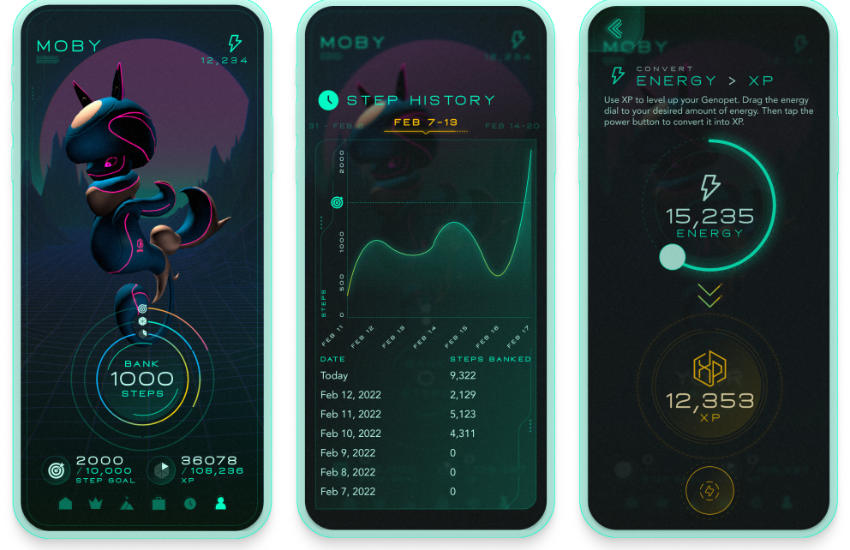Last week Samsung Next announced it invested GenoPets, a move-to-earn NFT game. The news comes after the startup raised $8.3 million last October, led by Konvoy Ventures and Pantera Capital, with participation by Alameda Research, Animoca Brands and numerous others.
You’ve heard of play-to-earn games like Axie Infinity which reward gamer performance with crypto tokens. GenoPets have similarities, except players are compensated for physically moving around. So it’s a mix of Tamagotchi, FitBit and crypto. Another move-to-earn game STEPN has recently hit the headlines.
The GenoPets game is yet to launch and will initially be free to play. So far, it has 250,000 people on its waiting list. Its business model incentivizes people to use the paid version that lets players progress faster and unlock more features.
Every player has a Genopet NFT, which is upgraded based on activity and can be bought and sold in the marketplace. Users also earn crypto tokens based on physical and virtual activity.
The game will include the ability to buy virtual land, Habitat NFTs, that unlock advanced gameplay and, of course, can be bought and sold.
“We believe that adding the fun of gaming to our simple daily movements and long-term fitness goals is the key missing ingredient to getting us to enjoy working towards the thriving lifestyle that we all deserve,” said GenoPets in a blog post.
However, in order to endure, games are going to need to survive based on gameplay, not crypto tokenomics. Axie Infinity, the first big play-to-earn game, hasn’t done so well of late, with its token price peaking in November at $157 and currently now around $14. In terms of in-game transactions, it logged more than $500 million during a single day in November, although that was exceptional. Now the figure is around $2-$3 million a day, clocking 100,000 transactions daily, down from millions in November.
Both GenoPets and STEPN use the Solana blockchain.
Follow @LedgerInsights Copyright © 2018 – 2022 Ledger Insights Ltd.
Author
Administraroot


